Disney Movies Ranked: (Round 10) The "Diaspora Age"
Disney Movies Ranked: (Round 10) The "Diaspora Age"
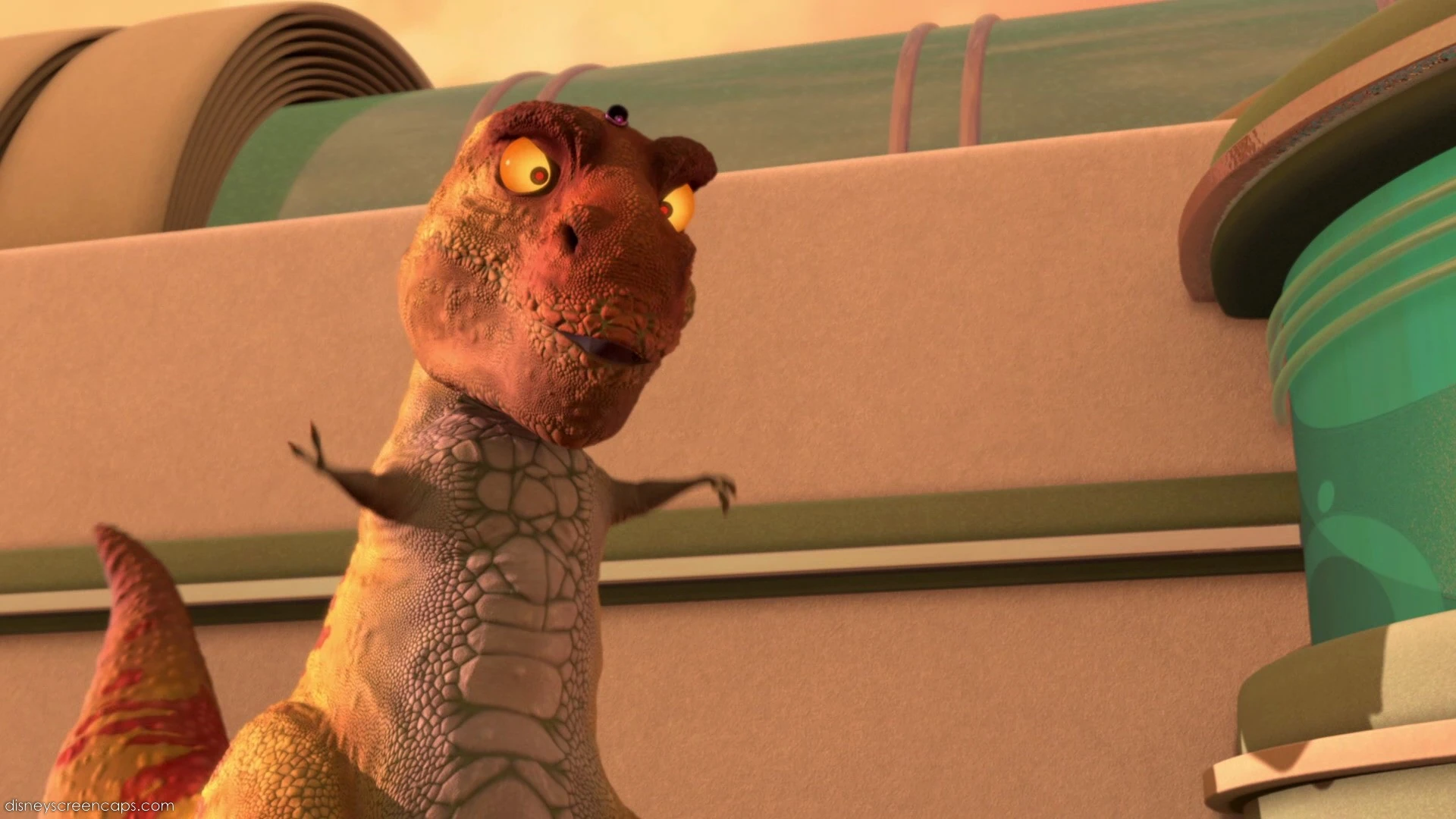
The movies in this round represent the second half of what's commonly known as Disney's "second dark age". When people criticize the post-Renaissance Disney movies, these movies are usually the ones who bear the brunt of it. And I can definitely see why that is the case. It's not that these movies are terrible, it's just that they're rather weak compared to some of other Disney films, and compared to what Disney's competition was making at the time.
In the Old Testament, we learn about what is known as the Jewish "Diaspora", a word which basically means the shattering and scattering of a people or nation. The Jews were conquered by neighboring countries and subsequently were scattered to all parts of the world and started a very dark chapter in their history. Jewish prophets stated that one of the biggest causes of this "diaspora" was the fact that the Jews turned to the outside world, and began to abandon their religious past. I named this age the "Diaspora Age" because I felt like Disney did something very similar with their movies during this time.
About the time of 2004, things were not looking good for Disney animation. At this time, they had temporarily split with Pixar (which was one of the biggest mistakes they ever made) and were losing money and acclaim left and right. Other studios were pumping out popular franchises and making tons of money. Dreamworks released Shrek, which made a fortune ripping on Disney classics, and then its sequel Shrek 2 went on to become one of the best-selling animated movies of all time. Blue Sky released Ice Age, which became a very popular franchise. Animated TV shows like Spongebob Squarepants were in their prime, giving the Disney channel huge competition.
Noting the success of Shrek and Ice Age, Disney decided to start making animated comedies, hoping to copy their financial lucrativeness. However, it seems that Disney didn't understand what actually made these franchises work. Disney took all the slapstick comedy, rude humor, and sarcastic tone from their competitors, but left out all the heart that made movies like Shrek and Ice Age resonate with audiences. They abandoned their own rich history of deep, emotional storytelling in favor of something lesser and cheap.
This age began with Home on the Range. This western-style movie heavily relied on rude humor and slapstick comedy. The animation was surprisingly sub-par (especially since it was traditionally animated), and the movie fell flat both critically and financially. With this movie's failure, Disney moved away from traditional animation and moved to CGI. Their next movie was Chicken Little, a movie which is often heralded as the worst Disney movie of all time. The movie is criticized for being mean-spirited, having hideous animation (especially compared to the beautiful CGI of Shrek 2 which came out earlier), and having an uninspired story. The movie was moderately successful at the box office though, so Disney decided to continue making CGI movies.
Things began to get better with Meet the Robinson's. By the time this movie came out, Disney had gotten back with Pixar, and began to have John Lasseter (one of Pixar's chief creative officers) offer input on their films. The movie was a moderately successful, and began to recapture some of the heart of previous Disney movies. Then, Disney came out with Bolt. This movie ended Disney's second dark age, and helped pave the way for Disney's future success in CGI animation. The movie was beautifully animated, had heartwarming characters, was loved by critics, and was financially successful. After Bolt, Disney would go on to regain its former glory.
And now, without further ado, let's start ranking these movies!
1. Best Female Lead
4th Place: Maggie (Home on the Range)



Hello everybody! I'm back with round 10 of ranking Disney movies. Just a reminder this is part of a series where I critique every single Walt Disney Animation Studios film, and "rank" them on a number of things such as music, character development, etc. If you'd like to visit past rounds, you can do so by clicking the link(s) below:
In the Old Testament, we learn about what is known as the Jewish "Diaspora", a word which basically means the shattering and scattering of a people or nation. The Jews were conquered by neighboring countries and subsequently were scattered to all parts of the world and started a very dark chapter in their history. Jewish prophets stated that one of the biggest causes of this "diaspora" was the fact that the Jews turned to the outside world, and began to abandon their religious past. I named this age the "Diaspora Age" because I felt like Disney did something very similar with their movies during this time.
About the time of 2004, things were not looking good for Disney animation. At this time, they had temporarily split with Pixar (which was one of the biggest mistakes they ever made) and were losing money and acclaim left and right. Other studios were pumping out popular franchises and making tons of money. Dreamworks released Shrek, which made a fortune ripping on Disney classics, and then its sequel Shrek 2 went on to become one of the best-selling animated movies of all time. Blue Sky released Ice Age, which became a very popular franchise. Animated TV shows like Spongebob Squarepants were in their prime, giving the Disney channel huge competition.
Noting the success of Shrek and Ice Age, Disney decided to start making animated comedies, hoping to copy their financial lucrativeness. However, it seems that Disney didn't understand what actually made these franchises work. Disney took all the slapstick comedy, rude humor, and sarcastic tone from their competitors, but left out all the heart that made movies like Shrek and Ice Age resonate with audiences. They abandoned their own rich history of deep, emotional storytelling in favor of something lesser and cheap.
This age began with Home on the Range. This western-style movie heavily relied on rude humor and slapstick comedy. The animation was surprisingly sub-par (especially since it was traditionally animated), and the movie fell flat both critically and financially. With this movie's failure, Disney moved away from traditional animation and moved to CGI. Their next movie was Chicken Little, a movie which is often heralded as the worst Disney movie of all time. The movie is criticized for being mean-spirited, having hideous animation (especially compared to the beautiful CGI of Shrek 2 which came out earlier), and having an uninspired story. The movie was moderately successful at the box office though, so Disney decided to continue making CGI movies.
Things began to get better with Meet the Robinson's. By the time this movie came out, Disney had gotten back with Pixar, and began to have John Lasseter (one of Pixar's chief creative officers) offer input on their films. The movie was a moderately successful, and began to recapture some of the heart of previous Disney movies. Then, Disney came out with Bolt. This movie ended Disney's second dark age, and helped pave the way for Disney's future success in CGI animation. The movie was beautifully animated, had heartwarming characters, was loved by critics, and was financially successful. After Bolt, Disney would go on to regain its former glory.
And now, without further ado, let's start ranking these movies!
Maggie is a huge step down in quality as far Disney protagonists go. I feel like they were trying to have Maggie be a Shrek-like character--all the while forgetting what made Shrek such a compelling character in the first place. Shrek is a sarcastic, subversive, comedic character, but he's also emotionally complex, and demonstrates genuine character growth. Maggie, on the other hand, is only sarcastic and comedic (some people would argue that she isn't even that humorous). She doesn't have any emotional complexity or growth to her character. The character changes she demonstrates are minimal, and the changes she causes in others is mostly circumstantial and shallow as well. Maggie fails to be an engaging character, instead, she becomes nothing more than a source of cheap, lazy jokes and gags.
I definitely think Maggie would have worked better as a side character, like Mushu. If she wasn't in the spotlight so much, it may have been possible for us to see a different side to her.
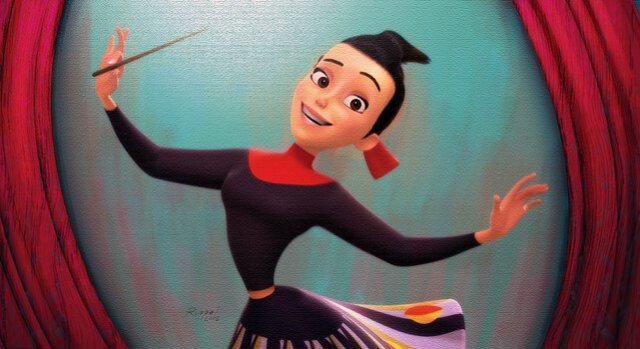
Franny has a rather interesting role in this movie. Since this movie deals with time travel and travelling to the future, Franny ends up being both a sort of surrogate mother to the main character, Lewis, and ultimately his wife. It's a little weird, but kind of interesting.
Franny has apparently discovered how to make frogs sing, and she leads them in a sort of band. This provides some of the movie's more memorable scenes. She's funny, unique, and as mentioned earlier, has a rather interesting and complex relationship with the main character.
2nd Place: Abby (Chicken Little)
3rd Place: Franny Robinson (Meet the Robinson's)

Franny has a rather interesting role in this movie. Since this movie deals with time travel and travelling to the future, Franny ends up being both a sort of surrogate mother to the main character, Lewis, and ultimately his wife. It's a little weird, but kind of interesting.
Franny has apparently discovered how to make frogs sing, and she leads them in a sort of band. This provides some of the movie's more memorable scenes. She's funny, unique, and as mentioned earlier, has a rather interesting and complex relationship with the main character.

Abby is one of Chicken Little's saving graces. Abby is such a powerful character that the movie would have turned out completely different if it weren't for her. For one thing, she's basically the only person to believe in Chicken Little from the start. When all the other animals are either indifferent or down right cruel towards him, Abby is there encouraging him and pointing out his positive traits. Her faith in him is one of the driving factors behind his character growth.
Another great thing about Abby is that she's the one who provides the solution to the movie's central conflict (Chicken Little finding reconciliation with his dad). Right at the beginning, she tells Chicken Little that he needs to confront the problems he has with his dad head-on, to actually talk with his dad and achieve closure. This leads Chicken Little to eventually share his true feelings of pain and abandonment with his dad. This then leads Chicken Little's dad to open up about his own insecurities, and resolve to become a better father.
Plus, Abby's great faith and actions don't go unrewarded. From the beginning of the movie, we know that she's attracted to Chicken Little, and wants to be closer to him. After she helps him overcome his emotional challenges, her dreams of becoming closer to Chicken Little are fulfilled, as he reveals his own feelings for her.
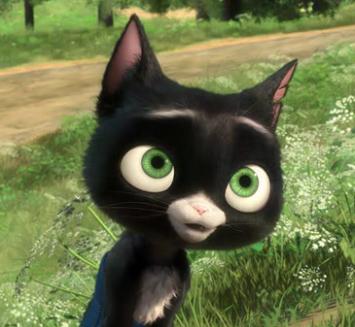
2. Best Male Lead
4th Place: Buck (Home on the Range)
Winner: Mittens (Bolt)

Mittens is one of the reasons why I love Bolt so much. She does everything that a good character does. First of all, she adds a ton of great humor to the movie. Her deadpan sarcasm and reactions to Bolt's real-life ignorance are just perfect. Eventually, her dry, sardonic attitude morphs into a personality of genuine concern and attachment for Bolt. She begins to teach him what it means to be a real dog. She helps him discover the life he never had, and it's her help that enables him to have a happy life at the end of the movie.
Perhaps the best part about Mittens' story though is her own happy ending. First off, in the middle of the movie, she and Bolt are captured by animal control, and are sent to an animal shelter. Mittens knows that her chances of being adopted are slim, especially compared to Bolt's. It's rather heartbreaking when she reveals these feelings to Bolt. What's even sadder is that Mittens has good reason to be afraid, because over a third of cats and dogs who go to animal shelters in real life end up being put down.
Bolt ends up rescuing Mittens, with some help from their hamster sidekick, Rhino. It's one of the most touching scenes when Mittens turns around and sees Bolt opening the door to her cage. Up until this point, nobody had ever come back for her. Her original owners abandoned her, leaving her to fend for herself, declawed, on the streets, "wondering, what she did wrong". The realization that she now has somebody who cares about her, who was willing to come back for her is evident in her words to Bolt as he frees her: "You - you came all the way back here... for me?"
During the end of the movie, we see Mittens overcome her final obstacle. Mittens creates a little cardboard box "apartment" of sorts for her and Bolt to live in. She's excited that she'll be able to have a home again, with a friend who truly cares about her. However, when Bolt tells her he can't stay, but needs to find his way back to his owner, Penny, Mittens' bitter feelings come back, and she tells Bolt to leave. We see her struggle with these bitter feelings until Rhino talks her into going back for Bolt...just like he went back to get her. She helps Bolt be reunited with Penny, and she later becomes adopted into their family. Finally, everything Mittens ever wanted is hers again.
2. Best Male Lead

Buck's character basically falls into all the same pitfalls that Maggie's does. He's obnoxious, egotistical, and doesn't have any emotional complexity or major character growth. To be fair, he does have some redemption. Throughout the whole movie, it's Buck's dream to be the partner to Rico, the famous bounty-hunter. Near the end of the movie he gets this wish fulfilled, however, he also learns that Rico is not the noble bounty hunter he thought he was. He abandons this lifelong dream of his to help save Maggie and her friends. In my opinion, it's too little too late to make him a good character, but it does give him some points.
3rd Place: Chicken Little (Chicken Little)
I must admit that Chicken Little, at his center, is a pretty good protagonist. His main emotional drives throughout the movie are pretty relatable. For one thing, he's struggling to live in a world that seems hellbent on making him miserable. All of the other children are cruel towards him, and the adults in the movie do nothing to prevent this cruelty--often engaging in it themselves most of the time. Despite all this, Chicken Little remains relatively un-phased by them, which is a remarkable example of resilience.
Another thing, is that he's a young boy trying to connect with his dad. Throughout the movie, we see Chicken Little and his dad struggle to emotionally connect with each other, and Chicken Little has to grow to the point where he is capable of sharing his feelings with his dad. Out of all the struggles he goes through in the movie, this is the one that is hardest for him--and that makes it all the more rewarding when we finally see him and his dad pour their hearts out to each other, and finally connect.

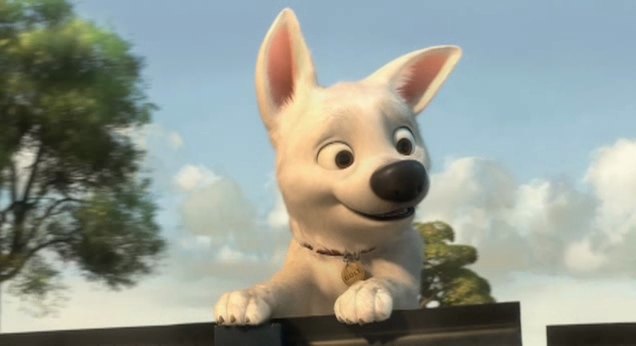
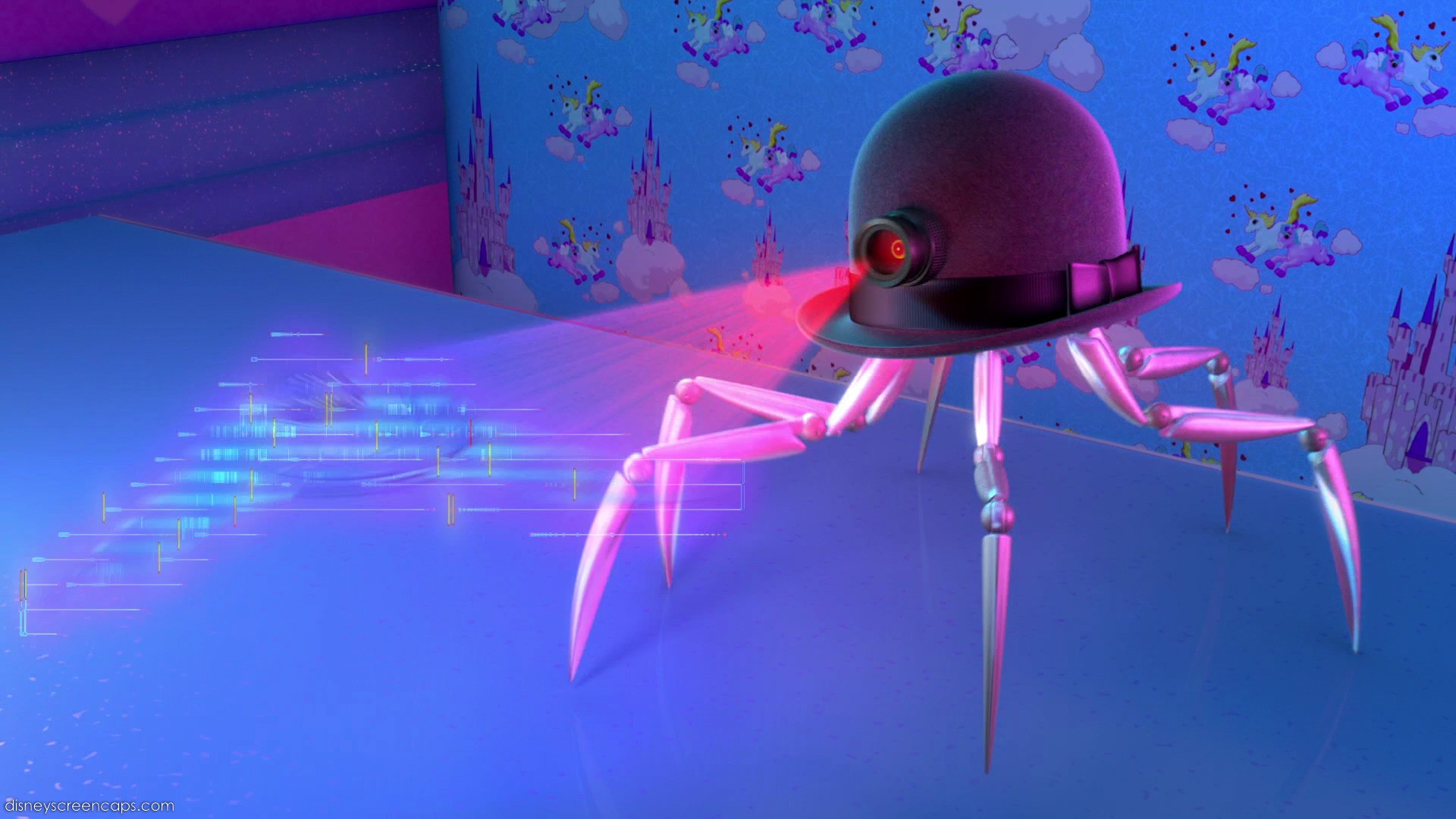

Another thing, is that he's a young boy trying to connect with his dad. Throughout the movie, we see Chicken Little and his dad struggle to emotionally connect with each other, and Chicken Little has to grow to the point where he is capable of sharing his feelings with his dad. Out of all the struggles he goes through in the movie, this is the one that is hardest for him--and that makes it all the more rewarding when we finally see him and his dad pour their hearts out to each other, and finally connect.
2nd Place: Lewis "Cornelius" Robinson (Meet the Robinson's)

So, technically there's two Lewis's in this movie, the Lewis from the past (the main one), and then the future Lewis. This adds some interesting aspects to Lewis's character, and provides some pretty good laughs. The best part about Lewis though isn't his time-travelling shenanigans, but rather, the power of his story.
He starts off as an orphan who nobody wants to adopt. By his own count, more than 100 people have interviewed him, and not a single person has expressed interest in adopting him. It's a rather heartbreaking moment when he reveals this. It's rather hard to believe that nobody wanted to adopt him, because he's an absolute genius. At thirteen years old, he invents a brain wave analyzer to help him remember the face of his mother (before she was forced to leave him at the orphanage as a baby). The thing that I love most about him is that he doesn't use his intelligence for greedy or selfish purposes, he uses it to help him find the family he never had, and eventually to make the world a better place.
Winner: Bolt (Bolt)

Besides being an adorable dog, Bolt is also the center of a very heartwarming story. Right off, we see that he is very devoted and caring to his owner, Penny. He wants to protect her and be there for her. Bolt's story isn't just about a dog being reunited with his family though. It's also a story about somebody learning how to find purpose in their life after learning that everything they ever knew was a lie.
Bolt spends half of the movie believing that the events of the TV show he stars in are true, and that he has superpowers. This leads to some really great humor, but also some touching emotional moments. The mishaps that Bolt has due to his delusional beliefs are entertaining to say the least. My favorite is when he tries to jump onto a moving train, carrying a hapless Mittens behind him. Eventually, however, he comes to the realization that he is not a super-dog, and that everything he believed about his life up until that point was wrong.
It's at this moment that he begins to doubt himself. He says to Rhino, "if I don't catch bad guys...then who am I?" It's a very powerful question. Up until that point, Bolt defined his life by the powers that he had, by his abilities. At this lowest point, he learns what truly defines him: his love and devotion for Penny. After he does this, he then becomes the hero he always thought he was, just in a different way. He rescues Mittens from the animal shelter, and in so doing rescues her from her despair. The purpose that he finds gives him the strength that he needs to help another struggling person to find that purpose in themselves.
I must admit that Bolt (along with Mittens) is by far one of the deepest animal characters that Disney's ever written.
3. Best Villain/Antagonist
4th Place: Doris (Meet the Robinson's)

Meh. Doris is kind of bland villain in my opinion. I mean she (or it?) is unique in the sense that she's a bowler hat robot thing, but her motivations and the way she executes her plans are rather dry and feel a little tacked on. I honestly found her blundering minion, Goob, far more interesting than her.
3rd Place: Penny's Agent (Bolt)

"You know, when I was little, I wanted a bicycle for my birthday, but my parents got me a baseball glove. So you know what I did? I pretended that baseball glove was a bicycle, and rode it to school every day. True story."
So at first, I didn't really know who the villain of this movie was. There was the villain of Bolt's TV show, Dr. Calico, but he was just an actor. But then I realized something. Hollywood, and the fake life that it promotes, is the obstacle preventing Bolt from achieving his character goals. And who represents that fakery most of all? Penny's agent.
Throughout the movie, we see this guy ignore and invalidate Penny's feelings (sometimes in terrible ways), and pushes her (and bolt) to continue living the lifestyle of fame and acting that is preventing them from having a normal, happy life together.
It's kind of a bold move for Disney to basically use themselves (or at least one aspect of themselves) as the antagonist in one of their movies. But I feel like it works really well. The fake, insincere shallowness that the agent represents makes the genuine life that Bolt discovers stand out all the more.
2nd Place: Alameda Slim (Home on the Range)

Alameda Slim is a refreshingly zany villain, who makes the rest of the movie bearable. Basically, he's a cow bandit who goes around hypnotizing cows by yodeling, and then leading them off to his underground lair. Remember that creepy snake from The Jungle Book? Well, that's this guy, in human form. Every time he whipped out his little banjo and started yodeling, I couldn't help but smile and chuckle a little. He's a completely absurd villain--but at least the movie doesn't pretend that he's anything otherwise. In a deleted scene, Alameda reveals that he originally planned on taking over the white house with a "cow army" and making himself President of the United States. I kind of wish they'd stuck with that for the actual movie :).
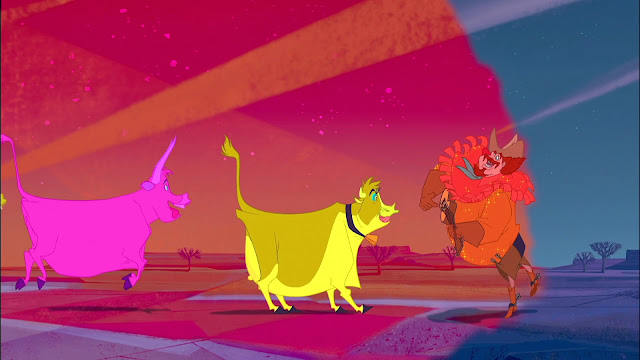
This is so weird...but I love it :).
Winner: Buck Cluck (Chicken Little)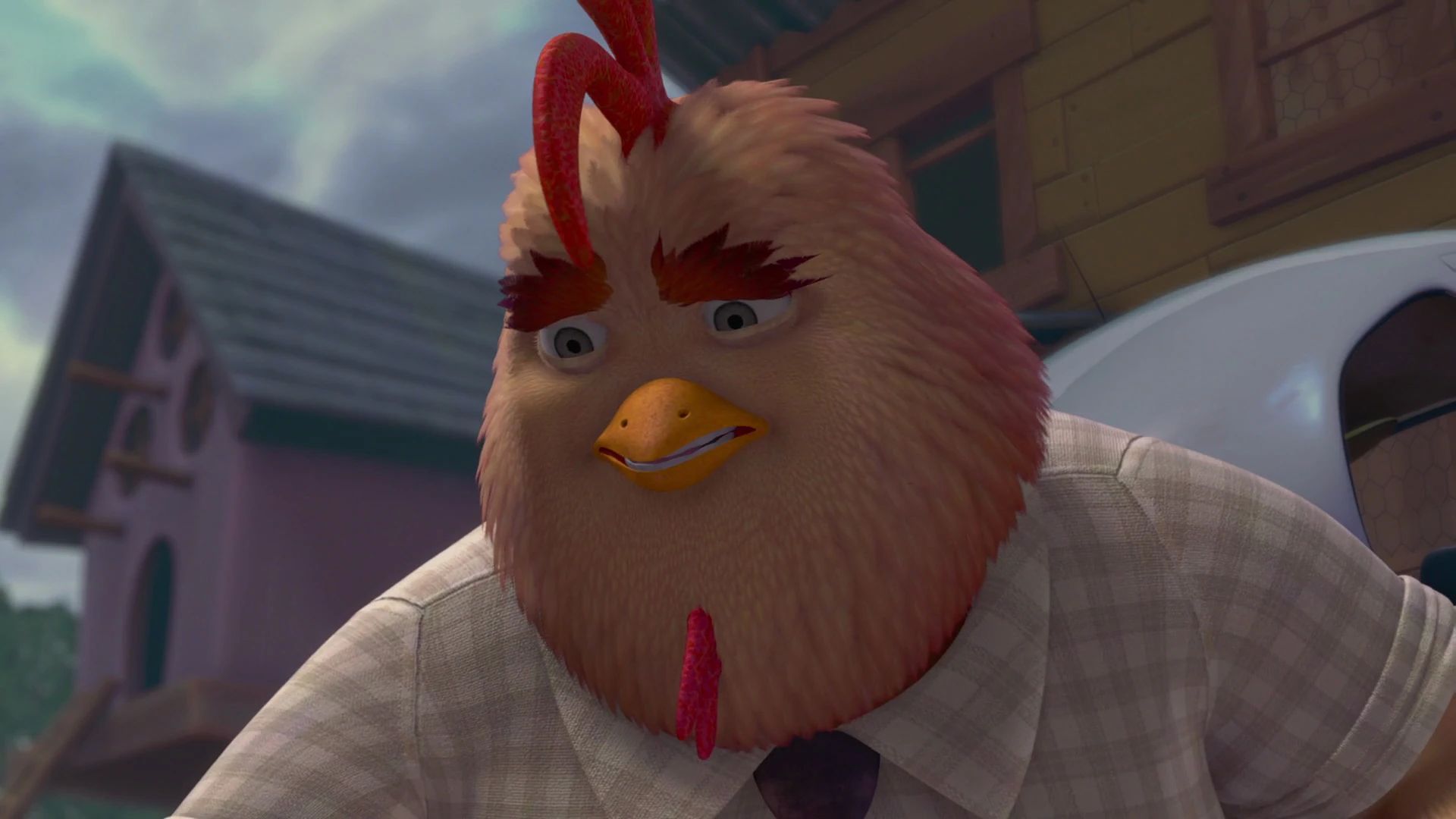
Buck is such a powerful antagonist. He isn't a typical Disney antagonist. For one thing, he's the father of the protagonist, and we can see that he does care about his son. He's never purposefully vindictive or cruel towards Chicken Little, nor does he bear any sinister agenda. Despite all this, the emotional pain he causes Chicken Little throughout the movie is heartbreaking, and it's hard not to resent him.
Every time his son turns to him, he turns away--abandoning him when he needs him most. When the other animals are mean or cruel to Chicken Little, Buck responds to his son with shame and embarrassment. When Chicken Little expresses the desire to join the baseball team, Buck actively discourages him from trying, and tells him not to get his hopes high. At the end of virtually every conversation with his dad, Chicken Little's face betrays the anguish and pain he feels from his father's lack of support.
Near the end of the film, however, Buck has a heart to heart talk with his son. He tells Chicken Little how inadequate he feels as a parent, especially after the death of Chicken Little's mother. He tells Chicken Little that he loves him, "and I'm sorry, if I ever made you feel like that was something you had to earn". Despite all his faults, and nigh neglectful parenting, Buck eventually faces his problems head on, and becomes the father Chicken Little needs. By the end of the film, he genuinely supports his son, and no longer hides his love for him.
Whereas other critics see Buck as the worst part of the entire movie, I see him as a facilitator for some of the movie's greatest emotional moments. I feel like his character arc is one that many single fathers can relate to, and appreciate. He shows that not all antagonists have to be a "villain". Sometimes, they're hurting just as much as the protagonist, and sometimes, they can eventually become the one who helps the protagonist the most.
4. Best Side/Supporting Character(s)
4. Best Side/Supporting Character(s)
4th Place: Runt & Fish (Chicken Little)
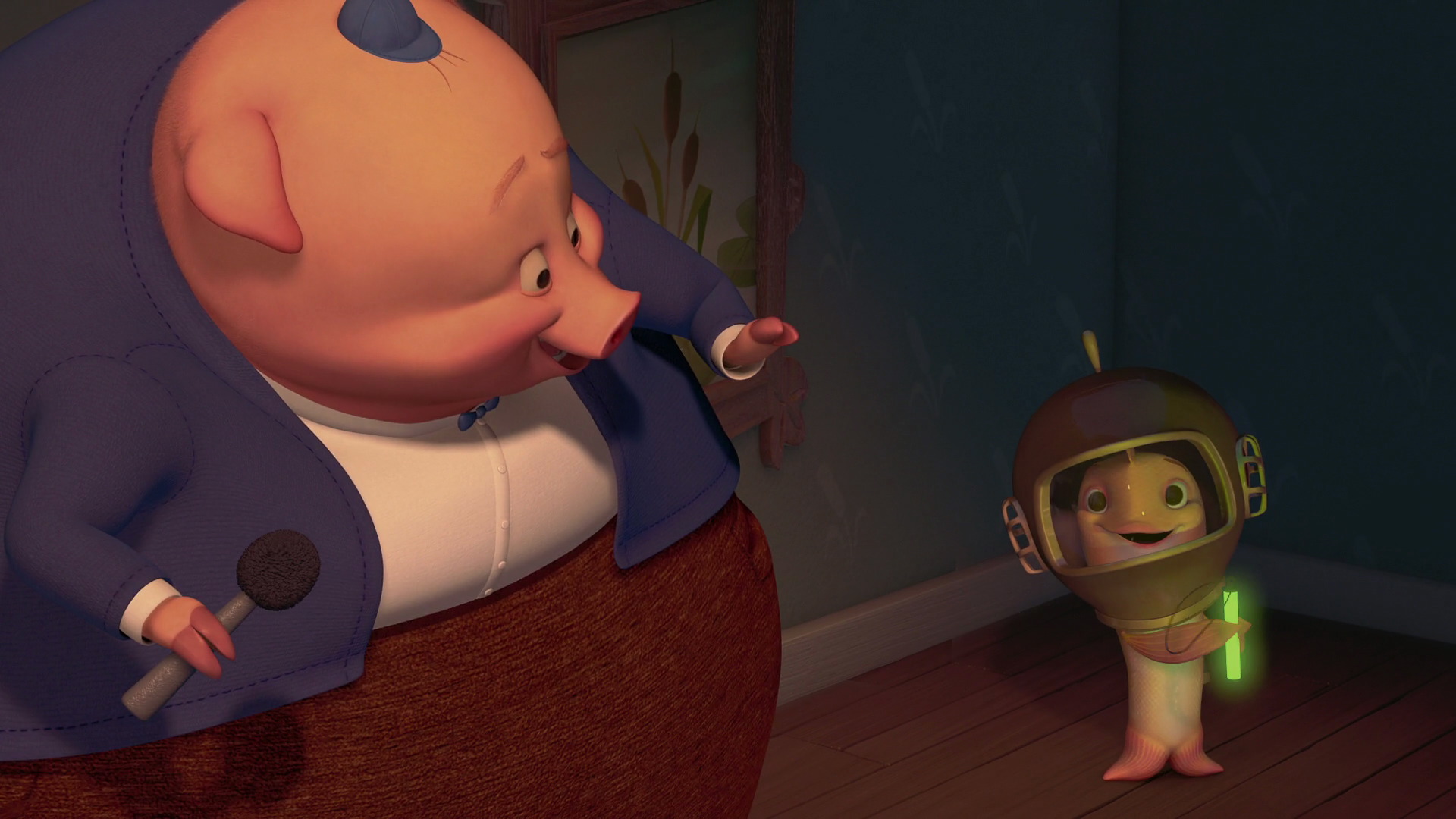
So, Runt and Fish are Chicken Little's only other friends besides Abby. Runt is a terribly annoying, over-the-top comic relief type character that does nothing but be useless, cowardly (holding his friends in front of him as shields multiple times during the alien invasion segment of the movie), and honestly insulting to the audience. Not only is he completely asinine, but he also perpetuates harmful stereotypes about people who are overweight. Fish is a rather clever character, I love how he's wearing a mariner's helmet full of water.

I honestly think Grace should have been the main character of this movie. First of all, I love her voice-acting (she's voiced by Jennifer Tilly who also voices Celia from Pixar's Monsters Inc.). Her voice is just so, well, graceful. Especially compared to the grating cacophony of Roseanne Barr's voice-acting of Maggie. Grace is also kind, gentle, and a good peace-maker, whereas Maggie is selfish, boorish, and intrusive.
She has an adorable, whimsical personality that makes her so lovable. However, she can also be assertive when she needs to be. She rescues Maggie and Calloway from being hypnotized by Alameda Slim, and does a pretty good job of helping to capture him. She also has a good balance of humor. She doesn't cram jokes down your throat like Maggie does, but rather, initiates humor that feels organic.
I also love the fact that her tone-deafness (or in her words, "perfect pitch") serves as an immunity against Alameda Slim's hypnotizing yodeling.


2nd Place: Penny (Bolt)

This is actually the second time Disney had a main character named Penny (the first Penny was the little girl from The Rescuers). Penny is basically the goal of the entire movie. It's obvious from the beginning of the movie that she is the best part of Bolt's life. However, the Hollywood life that they live makes it difficult for them to have a normal, happy life. And then, Bolt ends up being separated from her, and ends up half way across the country, hundreds of miles away from her.
We get some touching scenes involving Penny during the middle of the movie. After Bolt goes missing, we see Penny printing hundreds of missing-dog posters to find him. Her agent comes in, and shows her the dog that the studio got to replace Bolt. At first she's obstinate in looking for Bolt, and refuses to do the show without him. However, she eventually realizes that there are good people, with families, who depend on the show to make a living. She willingly chooses to go through with the show, without Bolt, and she turns the printer off--a very poignant symbol of her "letting Bolt go". Such a heart-rending decision makes it that much sweeter when she and Bolt are reunited at the end of the movie.
Winner: Michael "Goob" Yagoobian (Meet the Robinson's)

Goob is such a fun character, and one who I think benefits the most from time travel aspect of the movie. Goob starts as the roommate to Lewis. One night, he's kept up all night because Lewis is working on his invention. Because of this, Goob falls asleep during his baseball game and fails to catch the final ball, making his team lose. He ends up being the only orphan in the orphanage to not be adopted (and even still lives there after it's condemned). He eventually blames Lewis for his problems, and is enlisted by Doris to get revenge.
All of this of course isn't known until Good reveals his backstory near the end of the film. For most of the movie, we simply know him as the "bowler hat guy" who tries to help Doris capture Lewis, but more often than not just gets in the way. His antics provide some great humor (like when he brainwashes a T-rex and unsuccessfully uses it try and capture Lewis). We find out later on that Doris was simply taking advantage of Good the whole time.
After learning of Doris's true intentions, Goob makes the decision to help Lewis. A rather powerful step for him, considering the fact that Lewis was the person he blamed for ruining his life. And, after all the pain he went through, we see him get adopted at the end of the movie (as time reverses itself and all that time-travel business).
5. Best Songs/Music
4th Place: Chicken Little
This movie's music was barely even memorable. It wasn't bad, but it was just kind of there. It didn't do anything to really add to the story I felt like. It felt like they just tacked on some pop songs onto the movie at the end of production to make it more "hip".
3rd Place: Meet the Robinson's
While the music didn't really stand out very much in this movie, I still feel like it a decent job. The songs at least tried to have an impact on the story.
2nd Place: Home on the Range
Alameda Slim's "Yodel Adle Eedle Idle Oo" was surprisingly catchy, and delightfully zany. I think it's one of the few parts where the movie shines. The rest of the songs are kind of just okay.
Winner: Bolt
This movie did a pretty good job with its music. The background music that plays during the action sequences adds to the suspense, and the music does a good job of being pensive and gentle during the more emotional scenes. "Barking at the Moon" (or, "there is no home like the one you've got") is a beautiful song that just hits me in the feels every time. It fits perfectly with the movie's themes about home and learning to love one's life.
6. Best Romance
4th Place: Nobody (Bolt)
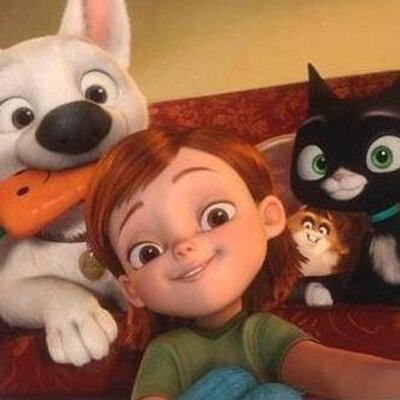
Yeah, this movie doesn't have any romance in it. But I really did enjoy the relationships the characters had with each other, it really made the movie super heartwarming and meaningful.
Plus, I personally think Bolt and Mittens would be a cute couple, in a strange way. But, that's kind of delving into the "fan-fiction" side of Disney, rather than actual canon :).
3rd Place: The Bulls (Home on the Range)

This is more of a joke in the movie than an actual romance, but they do end up dancing together at the end, so I guess there's some courting going on there. There's not much to say. The three cows walk through a group of bulls who've never seen female cows before, and awkward flirting ensues. But for some weird reason, the bulls show up at the end of the movie and the cows start happily dancing with them, so yeah.
2nd Place: Franny & Lewis Robinson (Meet the Robinson's)
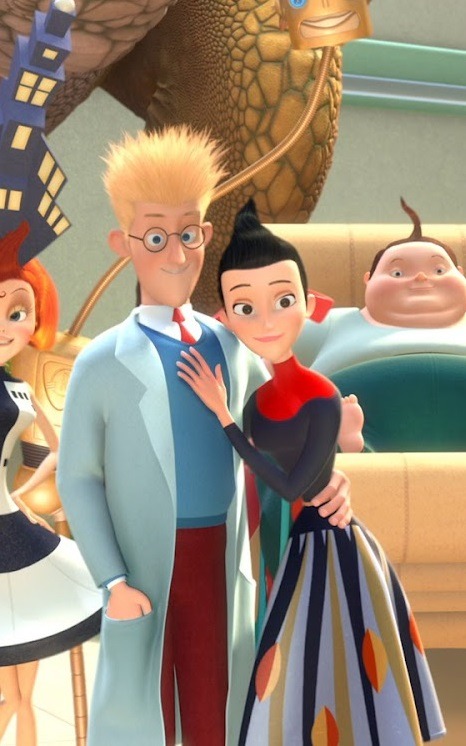
As I mentioned before, this relationship is kinda weird given the fact that Franny is Lewis's wife, but also almost becomes his adopted mother. We don't really see much of their actual romance, but they seem like a kinda cute couple.
Winner: Abby & Chicken Little (Chicken Little)
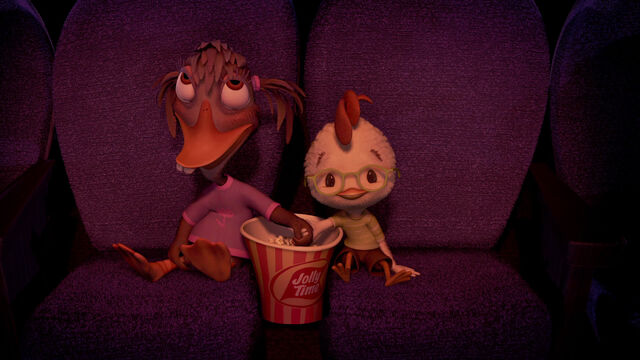
The romance between these two is, in my opinion, the best part of this whole movie. I mean look at them, aren't they adorable together? Like in any good relationship, Abby and Chicken Little bring out the best in each other. They're also both there for each other in a world that seems like it wants nothing more than to crush their hearts and dreams.
As I mentioned before, Abby does so much for Chicken Little. She listens to him talk about his struggles and doesn't judge him for it. She enthusiastically encourages him to take the steps necessary to heal the relationship with him and his dad. And the best part is that she doesn't let him get away with procrastinating his healing process. She can be a little overbearing with him sometimes, but at heart, it's because she genuinely cares about him, and wants him to be happy. That's a pretty strong foundation for a relationship.
7. Best Overall
4th Place: Home on the RangeAs I mentioned before, Abby does so much for Chicken Little. She listens to him talk about his struggles and doesn't judge him for it. She enthusiastically encourages him to take the steps necessary to heal the relationship with him and his dad. And the best part is that she doesn't let him get away with procrastinating his healing process. She can be a little overbearing with him sometimes, but at heart, it's because she genuinely cares about him, and wants him to be happy. That's a pretty strong foundation for a relationship.
7. Best Overall

Uggh, this movie was not good, and honestly, a little insulting. It felt like Disney knew that it wasn't going to do well and so just put zero effort into it. It tries too hard to be like Spongebob Sqaurepants and Shrek, and an overabundance of cow puns. Not a very good "moo"-vie (yeah, that's how bad they were).
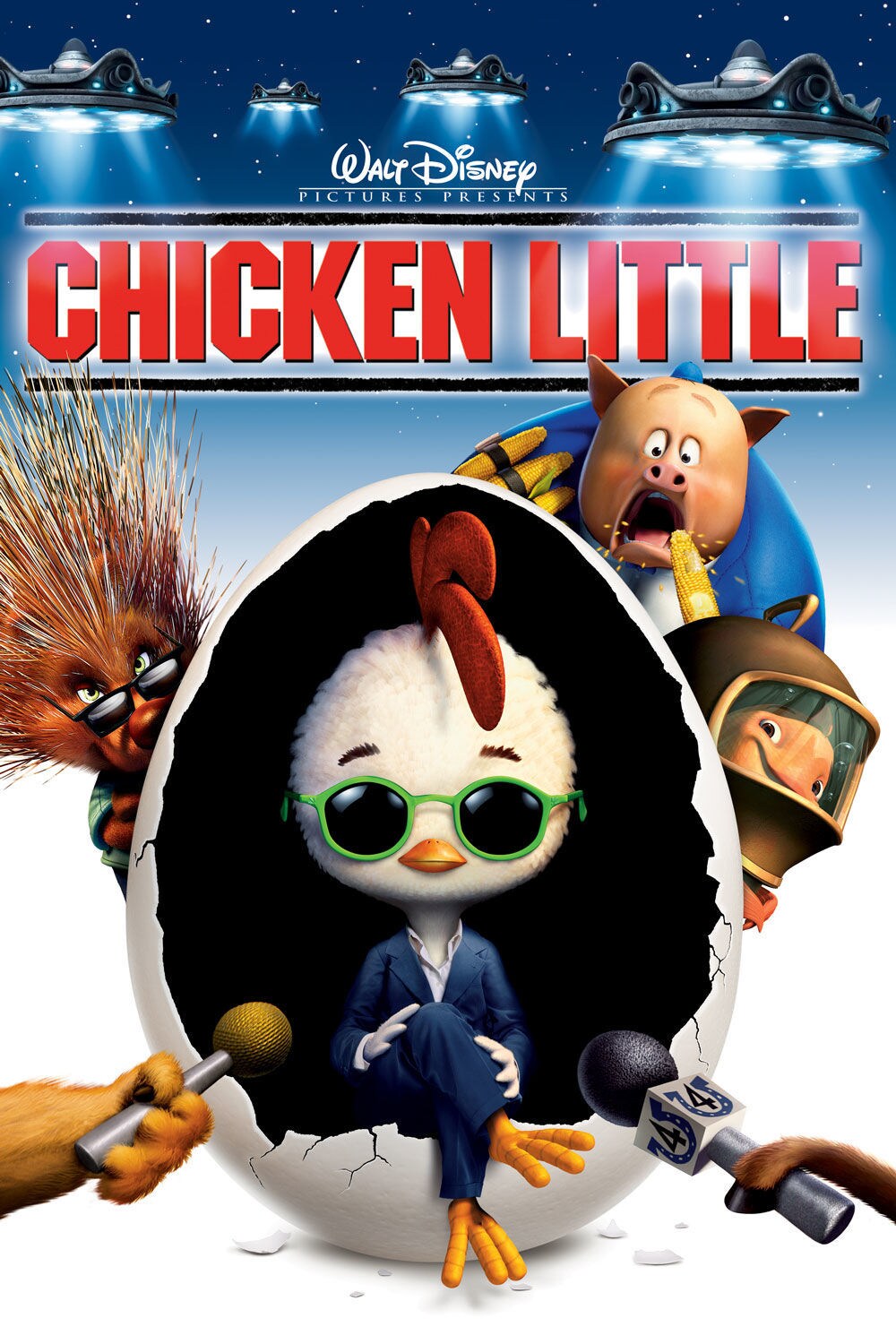
The advertising alone proves that Disney didn't even know what this movie was supposed to be. This poster implies that the movie is about Chicken Little becoming famous and well-respected, but the major conflict of the movie is Chicken Little achieving reconciliation with his dad. And why the heck is the porcupine--who literally had only three lines in the entire movie--on the front of the poster and not Abby, who is arguably the second most important character?
This movie has a good heart to it, the only problem is that it's swamped in immature jokes, cringey animation, tonal inconsistency. If they had focused on the emotional center of the movie, rather than trying to appeal to the Spongebob-worshiping-seven-year-old demographic, then this movie could have been pretty great.

Winner: Bolt

This movie has a good heart to it, the only problem is that it's swamped in immature jokes, cringey animation, tonal inconsistency. If they had focused on the emotional center of the movie, rather than trying to appeal to the Spongebob-worshiping-seven-year-old demographic, then this movie could have been pretty great.
2nd Place: Meet the Robinson's

This movie had some heart to it, and I really appreciate the effort they put into it. The story is kind of cool, the characters are memorable, and it was a step in the right direction for Disney's CGI line up. It suffered from some of the slapstick-ness of the bottom two movies in this round, so it loses out a little for that.
Winner: Bolt

Ever since I first saw this movie in theaters, back when I was a moody teenager, I've loved it. The simple, heartfelt story is told so well. The characters feel so alive and deep, and are reminiscent of great characters like Belle and Quasimodo from Disney's Renaissance age. This movie brought Disney back to its roots: making sincere, heartfelt family entertainment. This movie fully deserves to be at the top of this round's list, and stands as one of my favorite Disney movies of all time.
***
And there you have it! While Disney definitely stumbled a little during this age in their history, I feel like it was a necessary phase that they had to go through. Disney learned from the mistakes that it made during this time, and went on to make CGI masterpieces like Frozen and Tangled.
There's only two more rounds left! Next round, I'll cover The Princess and the Frog, Winnie the Pooh, Tangled, and Wreck-it-Ralph.
This week, instead of highlighting a children's organization, I wanted to highlight animal shelters. Each year, thousands of dogs and cats are put down because they never got adopted. Most animal shelters are under-funded or too short staffed to be able to take care of every single dog or cat that comes in, and so they have a large turnover rate. There's a lot you can do to help this. First of all, you can volunteer at your local animal shelter to help out. If you're currently thinking about buying a dog or cat, consider adopting one from the shelter. They're tons cheaper than buying from a breeder (most adoptions cost only $50, and it's usually cheaper for cats), they'll come pre-chipped, pre-potty trained (usually), and you'll be helping to save their life.
This week, instead of highlighting a children's organization, I wanted to highlight animal shelters. Each year, thousands of dogs and cats are put down because they never got adopted. Most animal shelters are under-funded or too short staffed to be able to take care of every single dog or cat that comes in, and so they have a large turnover rate. There's a lot you can do to help this. First of all, you can volunteer at your local animal shelter to help out. If you're currently thinking about buying a dog or cat, consider adopting one from the shelter. They're tons cheaper than buying from a breeder (most adoptions cost only $50, and it's usually cheaper for cats), they'll come pre-chipped, pre-potty trained (usually), and you'll be helping to save their life.
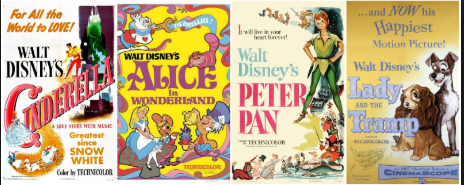

Comments
Post a Comment